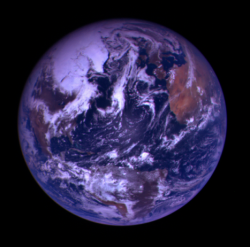Difference between revisions of "Portal:Economic Freedom"
| Line 5: | Line 5: | ||
<tr> | <tr> | ||
<td style="padding:5px;"> | <td style="padding:5px;"> | ||
| − | + | It is interesting to ponder the concept of wealth. If you understand wealth, you begin to understand poverty. It is, to a large extent, simply having very little wealth. So, what is wealth? It will be helpful to first say what it isn't. | |
| + | :Suppose you have a large pile of gold coins. That makes you rich, but you have no wealth if that is all you have. Gold is a static asset. You can use it to buy things, but it does not create wealth. | ||
| − | + | George Gilder<ref name="Wealth and Poverty">Gilder, George. ''Wealth and Poverty''. New York. Basic Books, Inc. 1981</ref> uses the illustration of oil rich middle East countries. Several countries with the highest per-capita spending power are in the middle east. Their income and spending power come from their oil assets. They can buy Rolls Royces, private Boeings, and build office buildings. But those are perishable things, and when the oil is gone, they will become as poor as they were before the oil was discovered. They have riches, but little wealth. Venezuela has much the same problem today, but is further down the road. They are a formerly rich country in the process of going broke. | |
| − | <references/> | + | :Wealth is having assets or capability and capacity that can generate a future indefinite stream of income. |
| + | :: For example, a person like Steve Jobs had great wealth long before he was rich. His asset was knowledge, the vision to use it, and a government that guaranteed him the freedom to create something that we did not know we needed until he presented it to us. | ||
| + | :Poverty can be thought of as lacking that which is wealth. Of course, that is too simplistic. One could not say that middle eastern oil countries are living in poverty today. But they certainly have the potential to do so in the future. | ||
| + | The economics and politics of wealth and poverty have much to do with [[Freedom|''freedom'']]. One can have the potential for wealth without having the freedom to fulfill it. And the potential for generating personal wealth can be dulled by government policy. | ||
| + | |||
| + | |||
| + | |||
| + | <references/> | ||
</td> | </td> | ||
| − | <td>[[File: | + | <td>[[File:earth.png|250px|link=]]<br> |
<hr> | <hr> | ||
<p style="font-size:80%"></p> | <p style="font-size:80%"></p> | ||
| Line 43: | Line 51: | ||
<h2 style="border-bottom:none;margin-top:8px;margin:0;background:#000080; font-size:120%; font-weight:bold; text-align:center; color:#FFF;">Articles</h2> | <h2 style="border-bottom:none;margin-top:8px;margin:0;background:#000080; font-size:120%; font-weight:bold; text-align:center; color:#FFF;">Articles</h2> | ||
{{#ask:[[Category:{{PAGENAME}}]]|format=ul}} | {{#ask:[[Category:{{PAGENAME}}]]|format=ul}} | ||
| + | |||
</div> | </div> | ||
</td> | </td> | ||
</tr> | </tr> | ||
</table> | </table> | ||
| − | |||
Revision as of 18:35, 17 June 2014
Wealth, Poverty, and Freedom
|
It is interesting to ponder the concept of wealth. If you understand wealth, you begin to understand poverty. It is, to a large extent, simply having very little wealth. So, what is wealth? It will be helpful to first say what it isn't.
George Gilder[1] uses the illustration of oil rich middle East countries. Several countries with the highest per-capita spending power are in the middle east. Their income and spending power come from their oil assets. They can buy Rolls Royces, private Boeings, and build office buildings. But those are perishable things, and when the oil is gone, they will become as poor as they were before the oil was discovered. They have riches, but little wealth. Venezuela has much the same problem today, but is further down the road. They are a formerly rich country in the process of going broke.
The economics and politics of wealth and poverty have much to do with freedom. One can have the potential for wealth without having the freedom to fulfill it. And the potential for generating personal wealth can be dulled by government policy.
|
 |
CategoriesClick on arrows to see subcategories and articles. Category Wealth, Poverty, and Freedom not found
Things you can doHere are some things you can do:
|
TBD
|